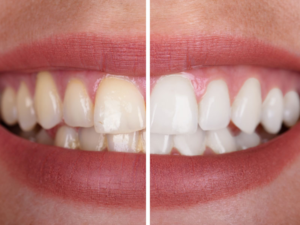
If you’ve lost one or more teeth, there are a few replacement options. A conventional denture or a dental bridge will probably come to mind. However, there’s a state-of-the-art alternative that can restore your smile and oral functionality – dental implants.
Dental implants are the next best thing to healthy, natural teeth. They’re a significant milestone in implant dentistry, and look, feel and work like real teeth. Implants hold several key advantages over other tooth replacement methods, so it’s definitely worth thinking about implants to replace your missing tooth or teeth. You can find out here what you need to know when considering if dental implants are for you.
How Do Dental Implants Work?
Dentists have been replacing missing teeth with implants since the mid-1960s. Dental implants are small screw-like posts, usually made of titanium. They’re surgically inserted into the socket of a missing tooth. After the implant has fused with jawbone, a connector called an abutment is attached to it. Together, these components form a secure anchor for an artificial tooth or teeth.
How Are Dental Implants Used?
Implants are a versatile solution to tooth loss. They can replace a single tooth, several teeth, or all your teeth. If you’ve lost one tooth, a prosthetic replacement in the form of a dental crown is secured to the implant. If you’ve lost a few teeth in a section of a dental arch, implants can support a dental bridge. If you’ve lost all your upper or lower teeth, an implant-supported fixed denture provides the solution.
What Makes Dental Implants Unique
Implants are unique in dentistry because they become part of your jaw. This happens as the implant integrates with jawbone to create an artificial tooth root. This process (called osseointegration) is one of the key advantages of dental implants. It stimulates jawbone growth essential to preserve facial structure and appearance.
Dentures and bridges can’t do this. Without the stimulation of a tooth root, jawbone will deteriorate, like muscles atrophy without exercise. Unlike dentures and bridges, which may need replacing over time, dental implants are designed as a permanent solution to tooth loss. They can last 20 to 30 years with good oral hygiene. Implants also have a stronger bite power, so they can cope with hard or sticky foods, which typically pose a problem with regular dentures and dental bridges.
Benefits of Dental Implants
Dental implants have multiple aesthetic and practical advantages compared with traditional dentures and dental bridges. Artificial teeth anchored by implants allow you to eat, speak and smile with confidence, and dental implants have the highest success rate of any type of surgical implant. Dental implants can last a lifetime. Even if the synthetic tooth or teeth are damaged, your implant will remain strong and secure, which makes dental repair work far easier.
Advantages of a Single-Tooth Implant
Loss of just one tooth can spoil your smile and damage your oral health. The resulting gap can cause surrounding teeth to shift out of place. Your teeth may then start to look crooked. The risk of cavities and gum disease might also increase. A single-tooth implant with a crown not only replaces the tooth but also gives you a crucial new tooth root.
Advantages of Implants with Dentures
Dental implants provide strong stability for dentures. Conventional dentures are attached directly to the gums. This exerts pressure on the jaw that with time can weaken oral structure, alter the shape of your face, and possibly shrink your jaw. Dental implants avoid this issue because they provide a solid base for dentures without putting a strain on the jaw.
Advantages of Implants with a Dental Bridge
A standard dental bridge is attached to teeth either side of the gap in order to secure the replacement teeth. This can damage these healthy teeth because it may entail removing a substantial amount of dental enamel. Dental implants don’t require any support from surrounding teeth.
The Dental Implant Process
A single dental implant can be placed in an hour. Multiple implants may take two to three hours. Your jawbone then gradually combines with the implant. This can take several months before healing is complete. You’re then ready for your permanent replacement tooth or teeth. Meanwhile, you’ll have a temporary crown, denture or bridge.
Stages in the dental implant process are:
- Tooth extraction if necessary.
- Surgical insertion of the implant.
- Attaching an abutment to the implant.
- Attaching an artificial tooth or teeth to the abutment.
Initial healing after implant surgery may take a few days as tenderness and swelling subsides. Sometimes a bone graft may be necessary ahead of implant placement.
Why Would I Need a Bone Graft?
If you don’t have sufficient healthy jawbone to support an implant, a bone graft can restore the bone.
Jawbone may be compromised if:
- You’ve had severe gum disease.
- You’ve had teeth extracted and not replaced them.
- You’ve worn dentures for many years.
Modern dental bone grafting is typically a fairly minor, minimally invasive surgical procedure.
Sinus Lift
Another type of bone graft sometimes needed in order to place dental implants is a sinus lift. A sinus lift – also known as sinus augmentation – is done when the sinuses are too close to the jaw or there’s insufficient bone height in the upper jaw. The procedure intensifies bone density in the jaw in the area of the premolars and molars, between the jaw and the sinuses on either side of the nose. It’s called a sinus lift because the sinus membrane is lifted to create space for the bone.
Are Dental Implants Right for You?
Whether you’re missing one or more teeth, you’ll likely be a suitable candidate for dental implant treatment at our Dental Concepts & Orthodontics Irving dentist office if:
- You have enough bone to secure the implants.
- Or you can undergo a bone graft.
- You’re in good general health.
- Your gums are healthy.
- You don’t have a chronic medical condition such as leukemia or diabetes.
- You don’t smoke or chew tobacco.
Contact us to find out for sure whether dental implants are your best option.







